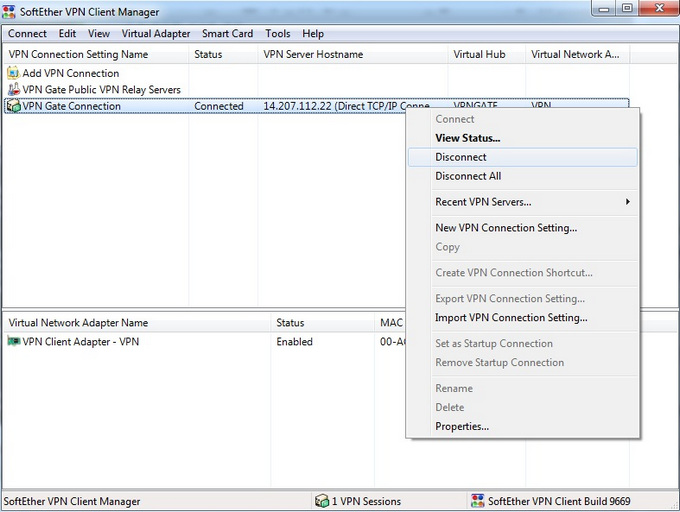
In an environment where the pre-shared key has not been changed (strongly not recommended dangerous usage), such an attack will establish an IPsec layer tunnel with the attacker's host.

However, if you have enabled the L2TP/IPsec, EtherIP/IPsec, or L2TPv3/IPsec features of SoftEther VPN and have not changed the recommended pre-shared key to "vpn" (the default value of three characters), such an attack will establish an IPsec layer tunnel with the attacker's host.This cyber attack does not target SoftEther VPN, and there is no possibility that SoftEther VPN will be affected directly at present. This cyber attack is considered to be an attempt to establish an IPsec VPN tunnel to infiltrate various corporate networks. Based on the behavior of the packets, it is believed that this cyber attack uses a dictionary attack to identify the pre-shared key of the IPsec VPN when a guessable word is used in the pre-shared key, and then establishes an IPsec VPN tunnel to break into various corporate networks. Recently, we have observed a brute-force cyber attack that originates from several IP addresses of cloud services and indiscriminately attempts to penetrate the network via IPsec VPN against a wide range of global IP addresses of the victim.
 The frequency of notification of disconnected tunnel identification numbers via IPsec Informational Exchange packets is now limited, reducing the occurrence of nonsensical packet ping-pong between attackers targeting IPsec VPN devices with a wide range of global IP addresses. In addition, if you have been receiving indiscriminate attack attempt packets targeting IPsec VPN devices, which have been occurring frequently on the Internet since around August 2021, and have been experiencing reduced communication speed or failed VPN connections for legitimate users, we recommend that you apply the update. If you are using the system with L2TP/IPsec, EtherIP/IPsec or L2TPv3/IPsec features enabled, we recommend that you apply the update. This RTM build includes all changes from the previously released Beta versions, Build 9754 and Build 9758. Improve the stability of IPsec function with reducing consuming CPU time / network bandwidth / memory consumption even if your server receive a large number of IPsec packets from indiscriminate attack attempts (brute force attacks, reflection attacks, etc.) targeting generic IPsec VPN devices, which have been occurring frequently on the Internet recently. Added support for V_ASN1_GENERALIZEDTIME notation for certificate expiration dates.
The frequency of notification of disconnected tunnel identification numbers via IPsec Informational Exchange packets is now limited, reducing the occurrence of nonsensical packet ping-pong between attackers targeting IPsec VPN devices with a wide range of global IP addresses. In addition, if you have been receiving indiscriminate attack attempt packets targeting IPsec VPN devices, which have been occurring frequently on the Internet since around August 2021, and have been experiencing reduced communication speed or failed VPN connections for legitimate users, we recommend that you apply the update. If you are using the system with L2TP/IPsec, EtherIP/IPsec or L2TPv3/IPsec features enabled, we recommend that you apply the update. This RTM build includes all changes from the previously released Beta versions, Build 9754 and Build 9758. Improve the stability of IPsec function with reducing consuming CPU time / network bandwidth / memory consumption even if your server receive a large number of IPsec packets from indiscriminate attack attempts (brute force attacks, reflection attacks, etc.) targeting generic IPsec VPN devices, which have been occurring frequently on the Internet recently. Added support for V_ASN1_GENERALIZEDTIME notation for certificate expiration dates.






 0 kommentar(er)
0 kommentar(er)
